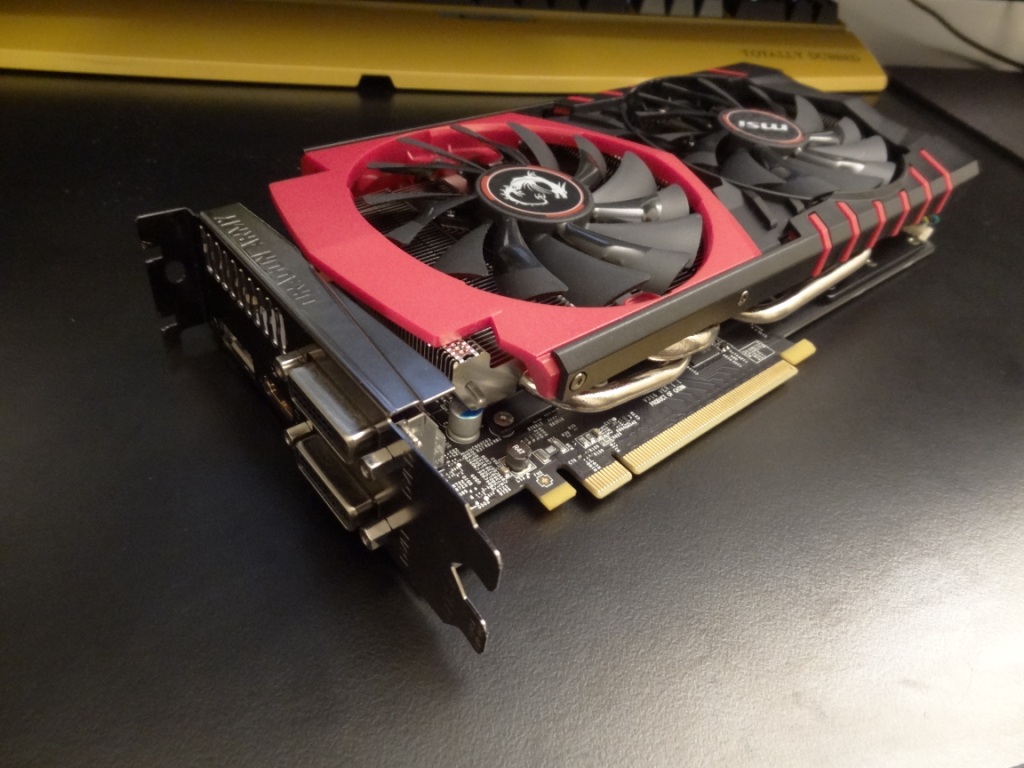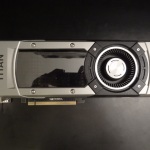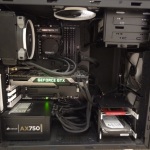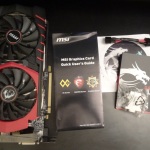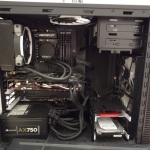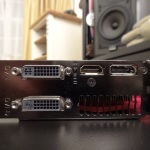Update January 2015:
After what’s been discovered of the GTX970’s VRAM problems, going past 3.5GB – I do hold a little reservations in actively recommending this card any more.
Click here to view my thoughts on this issue.
The GTX970 is still a fabulous card, but if you are going to be using these in SLI and at very high resolutions (ie 4K on 2 monitors), then I would highly suggest not buying the 970s as they are severely troubled when going past 3.5GB.
Essentially this has all been a marketing/PR blunder by Nvidia, where the card actually runs at full bandwidth till 3.5GB and once it goes to the last 0.5GB is reallocated at a much lower bandwidth.
This means, in reality, that you’re buying a 3.5GB card with severely dampened speeds for the last 0.5GB of the 4GB VRAM allowance.
More than anything here, I find it absolutely disgraceful from Nvidia, who haven’t acted upon it nor offered any sort of apology to their customers.
What I’m trying to say is simple: If you don’t see yourself ever using more than 3.5GB, then the 970 is still an excellent choice – but do remember future games will be using more VRAM, and due to this – I find it hard to recommend a card that will leave you pulling your hairs out, due to it stuttering and crashing when trying to use more than 3.5GB.
Below is my original review – just please bear in mind what I’ve said above, when you read it!
-Chris
Introduction
Before getting into this review, I would like to say a huge thanks to MSI for sending me the GTX 970 for a 2 week trial, so that I could review it.
It can be purchased on AmazonUK for around £280 & AmazonUSA for $375.
Ever since the 970 and 980 got announced, using NVIDIA’s Maxwell Architecture, I was very much intrigued to see how it improved over the previous 7 series line and furthermore how it would stack up against my trusty SLI 680s.
I would also like to thank my good friend Kai, the webmaster of this site for lending me his EVGA Titan Black. Despite the Titan Black being dedicated to developers and not gamers (due to its 6GB VRAM and very expensive price tag), it was still useful to have as a comparison as GTX 780ti users could use the Titan Black benchmarks as a direct comparison against the 970.
In other words, your gaming experience between the 780ti and the Titan Black would be extremely minimal – therefore do take the Titan Black results with a grain of salt at their listed price and instead take it as a direct comparison with the 780ti prices.
Finally, before continuing the review, I want to share all the info I gathered. As I believe in being absolutely transparent with readers/watchers. Throughout the review I’ll explain my methodology, but if you would like the files (ie FRAPS benches, incl frametimes etc) then I’ve made them ALL publicly available on my Dev Host account. Before you jump to anything – no the site isn’t spam (it was actually provided free to me, due to being a Recognised Contributor over at XDA Developers) – CLICK HERE to get to all the folders – I’ve organised them in a way that they’re easy to understand (individual links provided for each below):
- General – Has my presents and the master Excel bench spreadsheet
- Graphs – Has the bench graphs that will be presented in this written review, all in one place
- Single 680 – Has all single 680 bench results
- Titan Black – Has all Titan Black bench results
- SLI 680 – Has all SLI 680 bench results
- GTX 970 – Has all 970 bench results
On a side note – you’ll need Win RAR (It’s free), or some sort of compression tool to extract the files from the respective downloads.
Finally, make sure you click the right “Download” button, as the other one is advertising on Dev Host’s side (which doesn’t appear when you have AdBlock on Chrome) – and no I get no commission for the adverts (or for any review I produce/write!!).
On another note – I should mention, in my review sample I got a manual, a series info book, a driver disk, a VGA to DVI adapter and a 6pin to 8pin adapter for the card.
It is important to note that you will need at least two 6pin connectors from your PSU, ideally a 8+6 pin connector.
The card also comes equipped with a HDMI 2.0, DisplayPort 1.2, DVI-D and DVI-I ports – which is all you’ll need for nowadays monitors.
Let’s get on with this review!
To complement my written review I created a short video review, that doesn’t go into as much detail as this written review, but gives a brief overview on the results:

